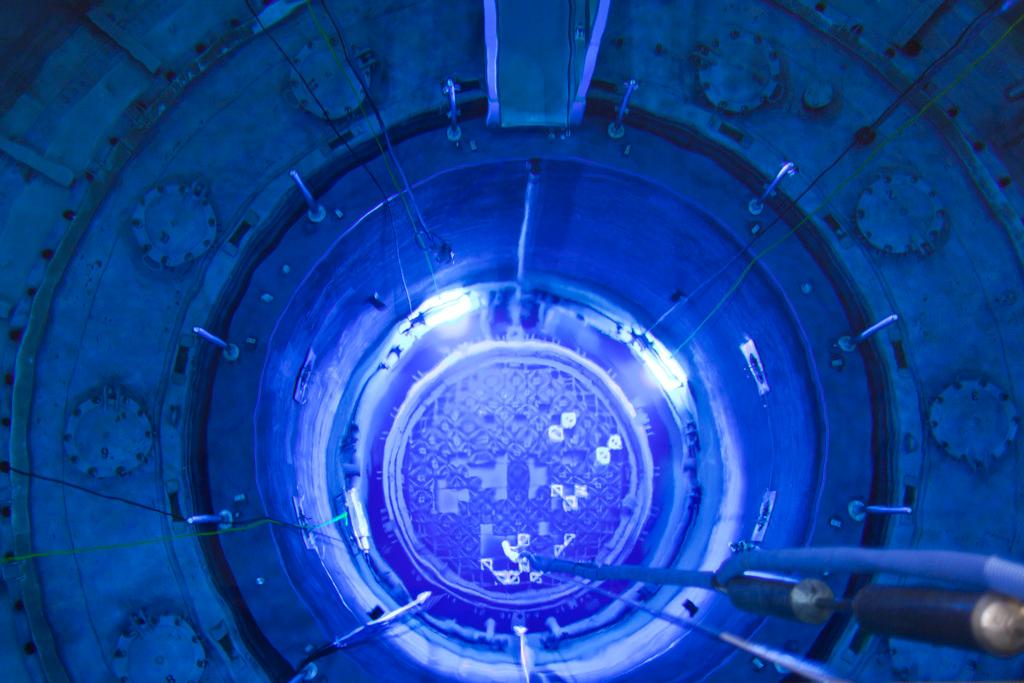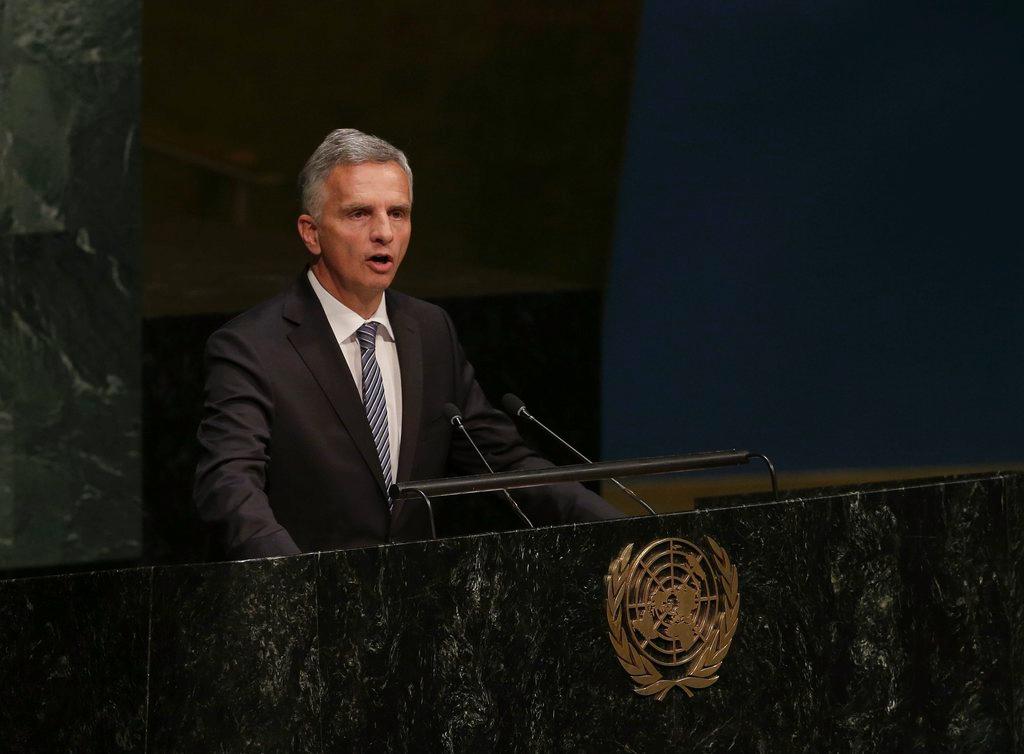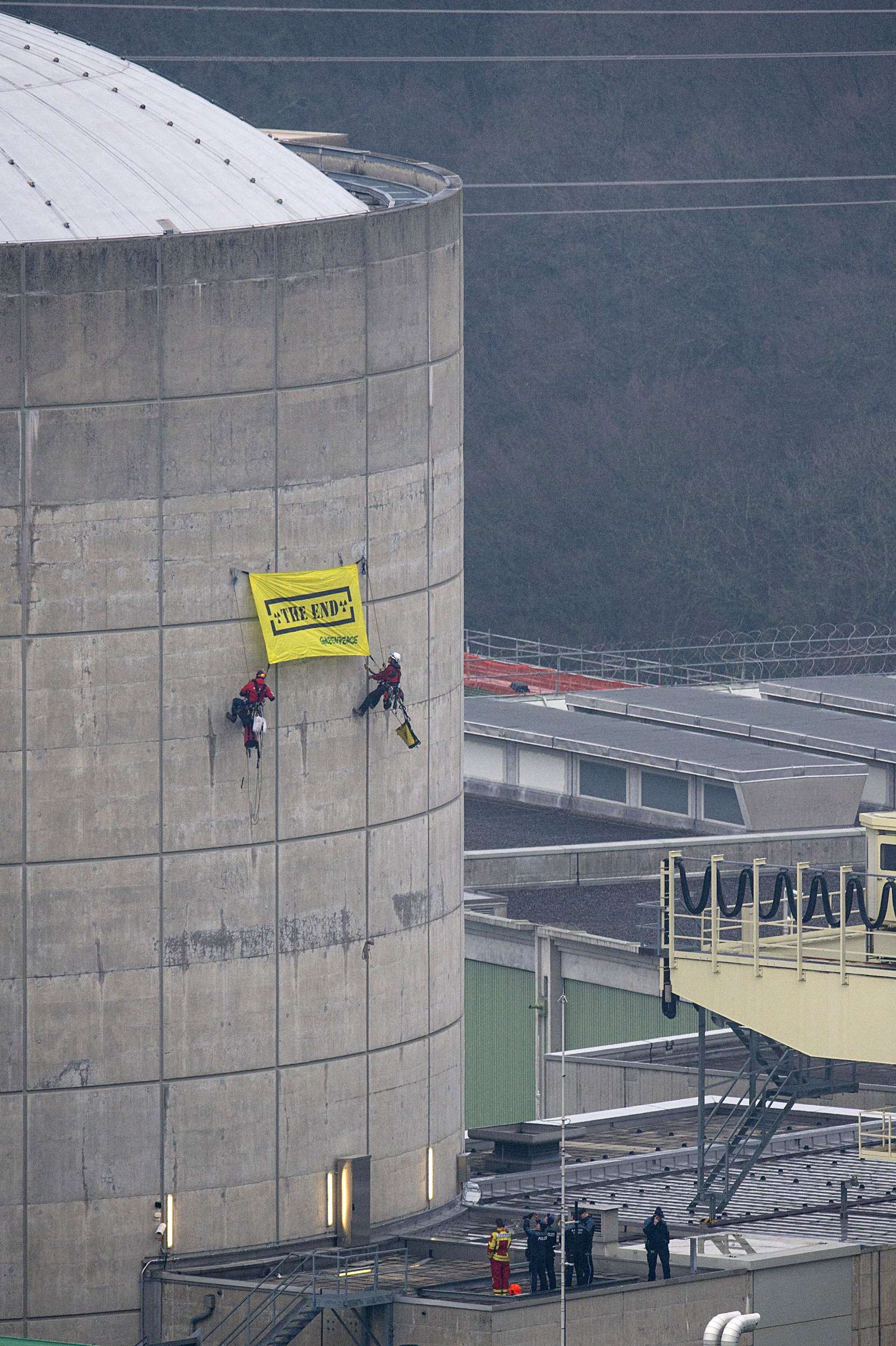Reports from Brussels stoke fears of attack

Nations’ defenses against nuclear sabotage – Switzerland tied in 6th place with the United States and Hungary in recent rankings – are in focus as the Brussels attacks raise concerns about the potential for terrorists to gain control of a nuclear power plant.
Belgian and international media reported on Saturday that a security guard at a Belgian nuclear plant was shot dead two days after three coordinated bomb attacks on March 22 at the Brussels airport and metro killed 31 people and injured hundreds more. But a local prosecutor ruled out links to militants, and denied media reports that his pass was stolen.
A Belgian nuclear power plant also may have been the target of an aborted plot by the Islamic State group that was responsible for the terrorist attacks in Brussels, according to Belgian news outlets. Two brothers who died in the attacks were reportedly taking secret video surveillance of a senior scientist at one of Belgium’s two nuclear power plants.
The hunt for suspected Islamic State operatives, including raids across Brussels and in France and Germany, is increasingly connecting the Brussels attacks with the Paris bloodshed last November. At the same time, fears have risen that jihadists are trying to get their hands on nuclear or radiological materials through insider theft or sabotage.
Concerns that the Brussels bombers might have been targeting a nuclear site or hoping to build a radioactive dirty bomb triggered tightened security at Belgium’s nuclear plants in the past week. Authorities on Friday took away security badges from several workers at one of the two Belgian plants.
Swiss in top rankings
A report in January by the Washington-based Nuclear Threat Initiative ranked 45 nations on a score of 0 to 100 for security against nuclear theft or sabotage. Finland had 95; Australia, 92; Canada and Britain, both 90; and Japan, 89. Next were Hungary, Switzerland and the United States, all at 88; Sweden, 87; and France, the Netherlands and Romania, all at 86.
Switzerland ranks particularly strong for cyber security and other control measures including on-site physical protection and prevention of insider thefts. Gilles de Kerchove, a Belgian who serves as the European Union’s counterterrorism coordinator, told Belgium’s La Libre newspaper he fears cyber attacks on nuclear plants.
‘I wouldn’t be surprised if there will be attempts to use the Internet for attacks in five years from now,’ he said in an interview published on Saturday. ‘Possible targets are data and management centers of nuclear plants, dams, air traffic controls and railway switches.’
Belgian nuclear regulators have said they are keeping close tabs on their facilities.
Safety before all else
Just one day before the Brussels attacks, the head of the Swiss Federal Nuclear Safety Inspectorate (ENSI) published an article on the agency’s website emphasizing the need for safety to take prominence in any public debate over the future of nuclear power.
‘The Swiss nuclear power plants, from a technical point of view, have a high level of security, and this is also the case by international comparison,’ wrote Hans Wanner. ‘Political or economic considerations should not lead to concessions on the matter of nuclear power safety.’
Two years ago, however, more than 100 Greenpeace anti-nuclear activists were able to break into Switzerland’s Beznau I nuclear plant – the oldest in the world – where they called for it to be closed down immediately due to safety concerns. The activists, from Switzerland and other European countries, entered the site using ladders to scale exterior fences. Several people climbed a building on the site and attached banners.
In the wake of the Fukushima disaster in Japan in 2011, Switzerland scrapped plans to build three new nuclear reactors and decided to phase out nuclear power by 2050 at the latest by turning to other forms of energy to make up for the shortfall. About 40% of the nation’s energy now comes from nuclear power.
Parliament, however, refuses to put a time limit on the life of Switzerland’s five existing nuclear power plants. The BKW Group has said it will take one of the older plants – the Mühleberg facility, which it operates in canton Bern – off grid in 2019, and will then take 15 years to decommission it.

In compliance with the JTI standards
More: SWI swissinfo.ch certified by the Journalism Trust Initiative



You can find an overview of ongoing debates with our journalists here . Please join us!
If you want to start a conversation about a topic raised in this article or want to report factual errors, email us at english@swissinfo.ch.